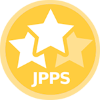Peer evaluation and plagiarism detection
Peer evaluation
El Higo Scientific Magazine is a periodical and refereed publication that accepts original and relevant research papers in the field of Science, Technology and Innovation.
The evaluation system used by this magazine is confidential and anonymous, its duration between 8 to 12 weeks. All articles received are subjected to a double-blind external peer evaluation process; The referees are those people that the Editorial Committee considers most appropriate according to their professional profile, academic merit and experience.
Parameters and format used by evaluators click here
The quality of the publications depends on the evaluation carried out by experts or peers and the publication of the article is determined by the editorial board. The process called the peer review system consists of two or more reviewers reading and analyzing articles to determine both the validity of the ideas and results and their potential impact on the world of technology. science. To achieve this, the Executive Editor of El Higo Magazine selects the evaluators from among the most prestigious researchers in the different disciplines.
Recognition of reviewers
Although reviewers do not receive financial compensation, the journal recognizes their valuable contribution to the editorial process with:
Certificate of recognition: They are given a digital certificate that certifies their participation as a reviewer.
Access to information: They are offered free access to the magazine and other resources of scientific interest.
Prestige: Their participation in the journal allows them to strengthen their professional profile and contribute to scientific advancement in their area of knowledge.
Plagiarism detection policy
In El Higo Magazine, originality is a fundamental pillar for the publication of scientific articles. The integrity and authenticity of research are essential to the advancement of scientific and technological knowledge.
Articles sent to El Higo magazine must be unpublished and must not have been published in whole or in part in any other magazine or media. Authors are expected to present novel research results, provide new perspectives and contribute to scientific knowledge in the area of interest.
Plagiarism and self-plagiarism are not tolerated. Exhaustive reviews are carried out to detect any type of plagiarism, using specialized tools and the experience of peer reviewers. Articles found to be in violation of the originality rules will be rejected.
Resources used for plagiarism detection: Penelope.ai, Turnitin, Grammarly and Plagiarism Checker X.





